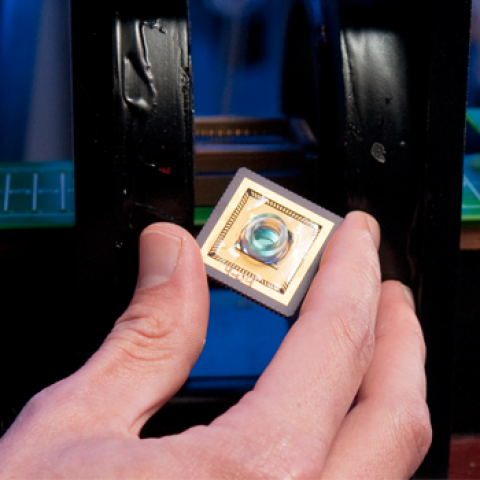Interdisciplinary Initiatives Program Round 5 – 2010
Karl Sylvester, Surgery
Shan Wang, Materials Science and Engineering
Necrotizing Enterocolitis (NEC) is the most common life-threatening gastrointestinal disease among newborns and a leading cause of premature infant morbidity and mortality. Overall mortality rates range from 15 to 30%, and are higher (50%) in those infants requiring surgical intervention for advanced NEC]. Further complicating the management of these critically ill infants is the considerable overlap in the early clinical presentation of NEC and sepsis from non-NEC causes. Currently utilized clinical parameters and serologic tests possess low diagnostic and prognostic capability, resulting in a non-specific, generalized treatment approach that can lead to significant additional morbidity. Previous attempts to utilize known cytokines and circulating mediators to distinguish NEC from sepsis, predict outcomes, and monitor treatment response, have not been successful. In order to develop more sensitive and specific tests for NEC, our consortium of investigators has undertaken an un-biased proteomic approach to identify a series of candidate protein biomarkers that can distinguish NEC from neonatal sepsis. To move forward with validation studies, we are co-developing an ultra-sensitive magnetic nanosensor pioneered by co-investigator Dr. Shan Wang to overcome the technical barriers inherent to multiplex protein detection in the clinical setting. Our overall objectives are to develop sensitive biomarkers along with multiplex capable biosensors to ultimately achieve improved capabilities for the real time monitoring of neonatal disease. We posit that dynamic monitoring of disease biomarkers will lead to more timely and objective patient disease classification and disease specific treatments for NEC and sepsis in newborns.



